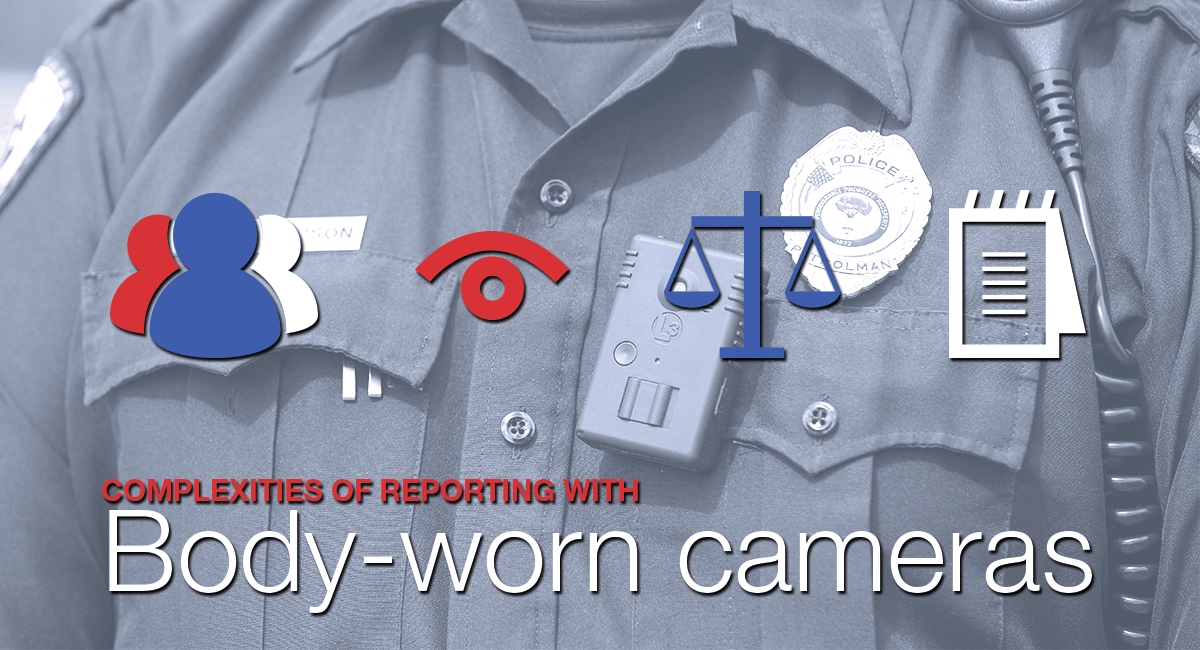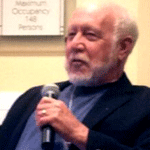
Join the Society of Professional Journalists D.C. Pro Chapter to learn how to improve accuracy and understanding as you report on policing. Special thanks to the Georgetown University Master’s in Journalism Program for co-sponsoring us — thus allowing tickets to be offered at no cost.
![]() This event has been scheduled during #SunshineWeek, “the annual nationwide celebration of access to public information and what it means for you and your community.” Please use the hashtag for any social media posts related to our discussion.
This event has been scheduled during #SunshineWeek, “the annual nationwide celebration of access to public information and what it means for you and your community.” Please use the hashtag for any social media posts related to our discussion.
Panelists:
 |
Robert Becker, Board Member D.C. Open Government Coalition Tweet to @DCOGC Robert Becker opposed Mayor Bowser’s attempt to exempt BWC video from Freedom of Information Act Requests on behalf of DCOGC. |
 |
Ralph Ennis, Commander (Tactical Information Division) Metropolitan Police Department Tweet to @DCPoliceDept Commander Ennis oversees all IT functions of MPD. He is a U.S. Air Force veteran with 22 years on the force and has been instrumental in rolling out the BWC program. |

|
Rochelle M. Howard, Deputy Director D.C. Office of Police Complaints OPC is an independent District government agency mandated to provide civilian police oversight of the Metropolitan Police Department. As Deputy Director, Rochelle Howard assists the Executive Director in managing the agency’s work and the Mediation Program. In May 2014, OPC issued the report “Enhancing Police Accountability Through Effective On-Body Camera Program for MPD Officers” that made seven recommendations to MPD which have been implemented. |
 |
Beverly A. Smith, Organizer/Secretary Coalition of Concerned Mothers, DMV Tweet to @CoalitionOCM Beverly A. Smith is a retired federal employee whose only son – Alonzo Fiero Smith, a.k.a. Zo, 27 – was killed by two special police officers from Blackout Investigations and Security Services on Nov. 1, 2015. This compelled Beverly to become an activist speaking out against police brutality and structural violence. She co-founded Pan-African Community Action (PACA) and founded Circle of Love and Support (COLAS), a grief support group to help parents cope with the loss of their child to police brutality or community violence. She also works with Coalition of Concerned Mothers and the Every Case Matters Campaign. |
 |
Emily Voshell, Special Litigation Staff Attorney Public Defender Service for the District of Columbia Tweet to @pdsdc Emily Voshell is a staff attorney in the Special Litigation Division at the Public Defender Service for the District of Columbia, where she works on systemic litigation, including on issues of discovery and defense access to exculpatory information. She has worked with a number of attorneys at PDS on emerging issues related to MPD’s increased distribution of Body Worn Cameras. |
Moderator
 |
V. Noah Gimbel, Former Editor-in-Chief The Georgetown Law Journal Tweet to @GeorgetownLJ V. Noah Gimbel has written extensively as both a journalist and legal scholar on criminal justice, foreign policy, immigration and more. As former editor-in-chief of the Georgetown Law Journal, he published an August 2016 note arguing in favor of broad pretrial disclosure of BWC footage for criminal defendants. |
- A government-issued ID is necessary to access this event
- Doors open at 6 p.m.
- Discussion, including audience Q&A, from 6:30 p.m. – 7:30 p.m.
- Light refreshments provided
- Questions? E-mail Eric Falquero, eric@streetsense.org
Registration for this free event is now closed. Those RSVPs have been used to expedite check-in at the security desk and inform the amount of food that is provided. Walk-ins are still welcome to attend without having RSVPed.
Last year during Sunshine Week, SPJ National released two reports under the heading “Mediated Access.” One was a survey of law enforcement agency public information officers, the other a survey of crime reporters. Despite many groundbreaking findings in these reports, body-worn camera policies were mostly too new for the PIOs and reporters surveyed to comment on. According to a press release about the reports, “Regarding body cameras, less than one-third of PIOs and crime reporters had experience dealing with body camera footage. Though it’s been talked about a lot, and many states are passing or considering passing legislation regarding body camera footage, it hasn’t actually been put into use in most places.
“The PIOs who had body cameras reported receiving requests for the footage sparingly – at most once a month, sometimes every few months and many had never received a request. Those who received requests said the most popular topics were calls in which the officer used bodily force, where an officer killed a member of the public, or where there was a confrontation between the officer and the public. Most requests were granted, with some redactions of things like the faces of undercover agents, bystanders, victims and graphic injuries.
“Of the crime reporters who had requested body camera footage, two-thirds actually received the footage and most used it on the air, on a website or for information in a print news story.”
This event aims to dig deeper into the complex issues that surround access to BWC footage as it relates to responsibly reporting on crime and law enforcement.
